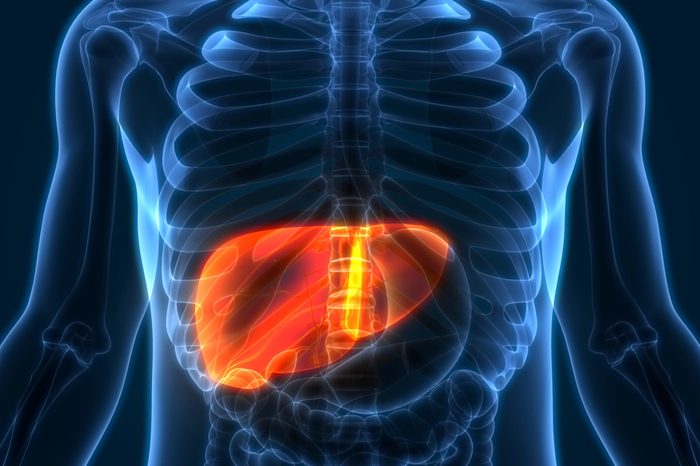
First, know that liver cancer rates are increasing
Liver cancer is fairly rare, but since 1990, its rate has doubled, rising from 3.5 to 6.5 per 100,000, says Otis Brawley, MD, former chief medical officer for the American Cancer Society. Liver cancer symptoms don’t usually show until the cancer has reached advanced stages, so regular screenings could be key to survival rates.
While screening is not recommended for people at low or average risk, screenings may be useful in people at high risk of liver cancer. That could include people with cirrhosis (scarring due to liver damage), hepatitis B infection, or a condition called hereditary hemochromatosis, according to the American Cancer Society. Screenings might include blood tests and ultrasounds every six months.
“If we have somebody with regular screenings and it looks like cancer, we can cure them, versus if they have an advanced disease that has spread beyond the liver,” says Ghassan Abou-Alfa, MD, medical oncologist at Memorial Sloan Kettering Cancer Center. “We prefer not to see patients with symptoms.” Read on for four risk factors and four symptoms that could clue you into signs of liver damage.
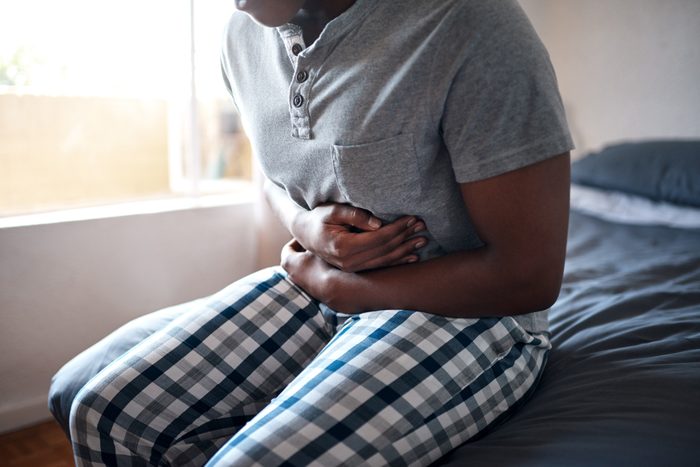
You notice unusual abdominal pain and swelling
Most people with liver cancer have pain in the upper right of their abdomen, Dr. Brawley says. It’s also often swollen, too. “When I examine a patient who’s asymptomatic, when I press where their liver is, they say it hurts,” he says. Pain in that area does not necessarily indicate liver cancer—it could also come from a hepatitis infection or gallbladder or pancreas problems, he says.
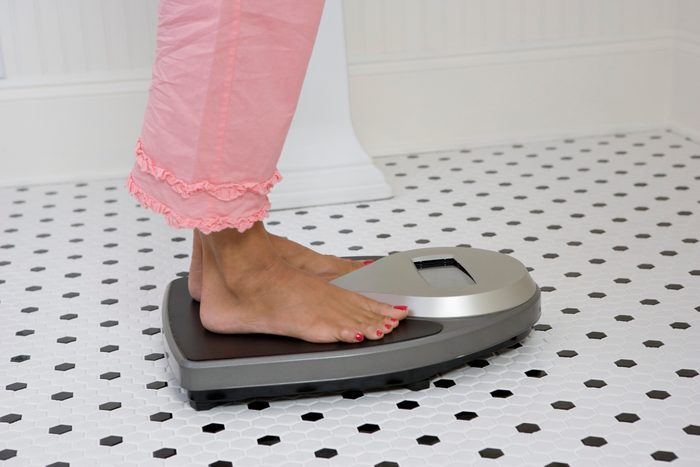
You’re losing weight without trying
“Weight loss and loss of appetite is a common symptom of people with a lot of different diseases, including a number of different cancers and viruses,” Dr. Brawley says. A drop on the scale might not be cancer, but make sure to tell your doctor if your other symptoms could be linked with liver cancer. (These are other cancer symptoms men should never ignore and cancer signs women shouldn’t overlook.)

You feel full quickly
Excess fluid in the abdomen could cause you to feel full faster than usual, Dr. Abou-Alfa says. “Cancer always makes you lose your appetite,” he says. Indigestion issues including burping and nausea are also common, but these are also symptoms of many other noncancerous conditions.

Your bowel movements have changed
Diarrhea is a common symptom of pancreatic cancer. Undigested food isn’t absorbed well and passes right through the digestive tract, the Pancreatic Cancer Action Network explains.
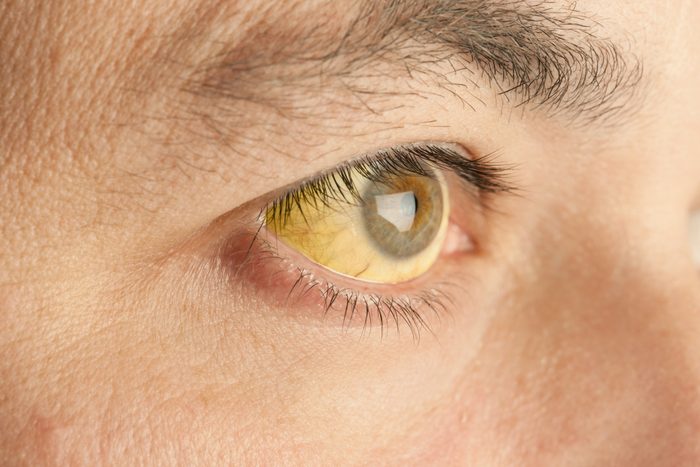
Your eyes or skin are yellow
These symptoms of jaundice could indicate liver cancer, Dr. Abou-Alfa says. “If you’re itching and have jaundice, it’s not a good story,” he says. Jaundice is also a symptom of other cancers including pancreatic and gallbladder cancer. However, it can also occur due to noncancerous conditions like viral infections (such as hepatitis A, a type of food poisoning), alcohol use, or other disorders.
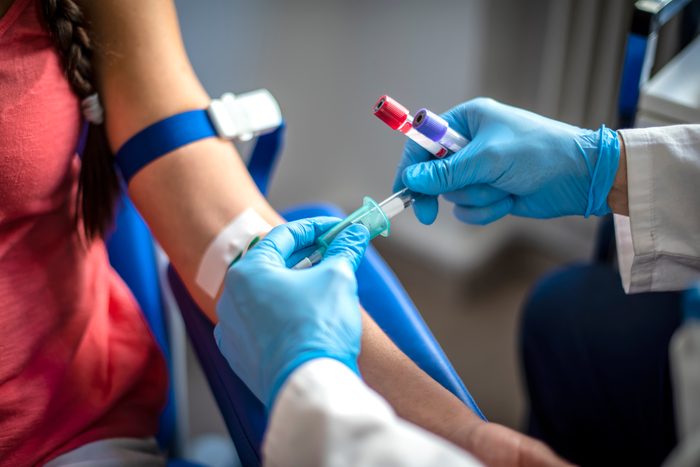
You’ve had hepatitis C
Certain characteristics may put you at risk for liver cancer. Those with a history of the virus hepatitis C can develop related liver cancer 10 years after their diagnosis, Dr. Abou-Alfa says. The CDC recommends anyone born between 1945 and 1965 get tested for the virus. “Most Americans in that age group haven’t been screened,” Dr. Brawley says. “There is treatment that can cure hepatitis C and therefore prevent liver cancer.” (You might have this “silent” liver disease and not even know it.)
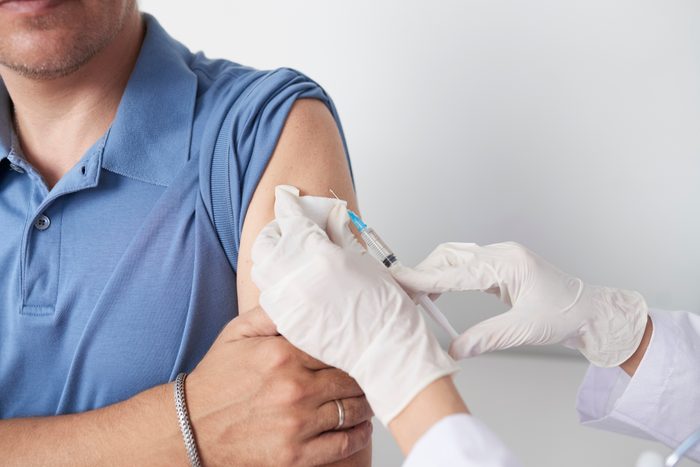
You’ve had hepatitis B (or haven’t been vaccinated)
Although it’s unrelated to hepatitis C, hepatitis B can also cause cancer. American children get vaccinated at birth, but others who haven’t gotten the vaccine could be at risk for liver cancer, Dr. Abou-Alfa says. “Anybody who has hepatitis should have some form of monitoring by a doctor,” he says. He recommends getting an ultrasound at least once a year to screen for cancer if you’ve had either virus. Testing for the protein alpha-fetoprotein in the blood could also signal liver cancer, though it hasn’t been proven to be an accurate test, Dr. Abou-Alfa says.
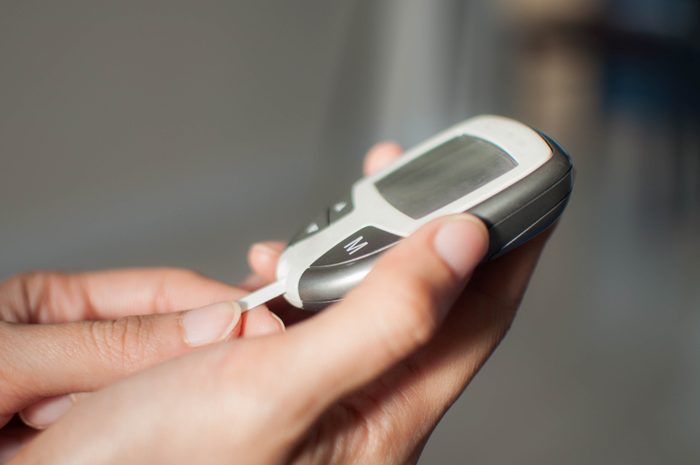
You’re obese or have type 2 diabetes
“The new driver [of liver cancer] is non-alcoholic fatty liver disease,” Dr. Abou-Alfa says. “The rise in liver cancer associated with obesity and diabetes has been the main driver for years.” Just because you are overweight, though, does not mean you are necessarily at high risk for liver cancer, Dr. Bawley says. “So many people in the United Sates are obese and liver cancer is so rare,” he says. The more risk factors you have, the more concerned you should be, so talk to your doctor.

You hit the bottle hard (or used to)
Regular, heavy alcohol use can damage liver cells, which are replaced by scar tissue. This condition, known as cirrhosis, can then lead to liver cancer, according to the American Cancer Society. (These are the 29 things you think cause cancer but actually don’t.)